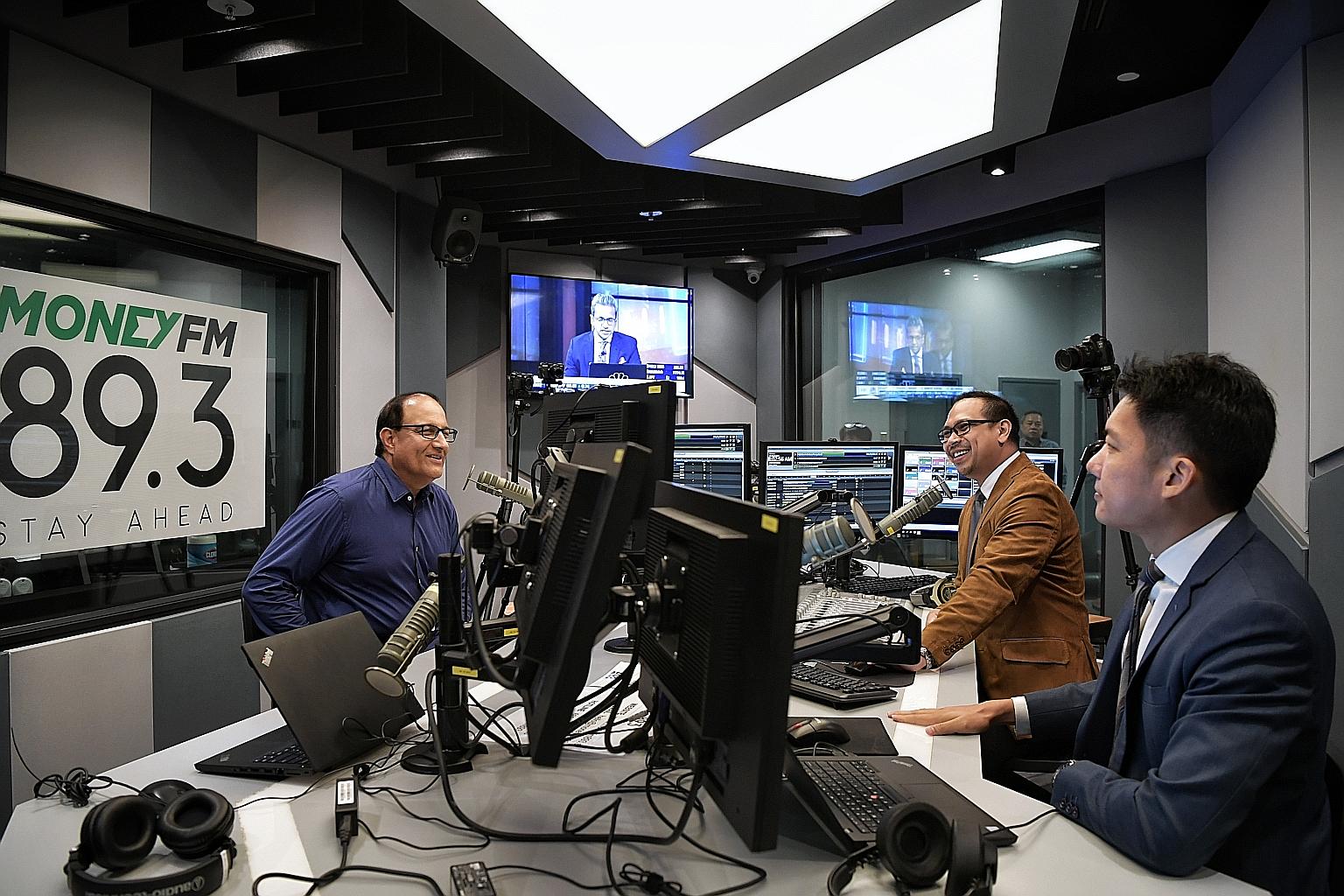Coronavirus: More firms now see value of digitalisation, says Iswaran
Sign up now: Get ST's newsletters delivered to your inbox

Minister for Communications and Information S. Iswaran during yesterday's radio interview with Money FM 89.3 co-hosts Ryan Huang (right) and Elliott Danker.
ST PHOTO: KUA CHEE SIONG
More businesses are seeing the value of increased digitalisation in the light of the Covid-19 pandemic, Minister for Communications and Information S. Iswaran said yesterday.
While the Government has long encouraged companies to intensify the use of digital technology in their processes, the coronavirus has brought into stark relief its relevance and merits at a time when businesses have had to act to minimise disruptions in the face of the virus, he said in an interview on Money FM 89.3.
"Right now, businesses see the value proposition - whether it is working remotely (or) transacting with business partners around the world," he told co-hosts Elliot Danker and Ryan Huang.
The current situation has also helped employees to understand why digital technologies are both relevant and useful, he added.
Digital technology has also helped the Government manage the crisis, he said, citing the Gov.sg WhatsApp service that has given Singaporeans "reliable information in a timely manner (that) also enables them to navigate all the other information they are receiving on a daily basis".
"We think these and many other digital sources of information and ways of communicating with our broader population (are a) key part of not just battling the crisis, but also preparing ourselves for the next phase of digital evolution in Singapore's economy," he said.
A myth that needs dispelling, he said, is that digitalisation applies only to some, when such technologies cut across every sector. Even traditional businesses in Kampong Glam and Little India are using digital technologies, whether for payments or to interact with their logistics providers, he noted.
Both businesses and workers need to view digitalisation as a journey, not something where one needs to "jump into the deep end in one fell swoop".
"What you can do is work on it (by) taking incremental steps, but have an overall strategy that takes you to the end point in terms of the kind of capabilities you need."
Asked about the Protection from Online Falsehoods and Manipulation Act (Pofma), which took effect last October, he said Covid-19 has vindicated what the Government said when it introduced the anti-fake news legislation.
It had argued that people today get information from a variety of digital sources, information from digital sources can be very viral and fake information can cause dire consequences.
Pofma "has actually proven to be very effective in the course of Covid-19, although it is very, very unfortunate that people still persist in pervading falsehoods even in these very trying times, and it causes fear and panic in our population", he said. "So, we have to move swiftly and decisively to deal with such fake news or falsehoods."
He pointed out that the Government's promptness in quashing early instances of fake news - such as debunking rumours in January of Woodlands MRT station being closed because of a suspected Covid-19 case - has "had a salutary effect". "Even in private messaging services... what I find is the instinct now is for people to ask the question, 'Is this fake? Is this real?' " Mr Iswaran said.
This is a very good instinct, he said, "because what it means is people realise they need to question the source, the authenticity of the information and its reliability".
Newspapers and the media remain an important source of accurate information, he added.
"The media plays a very important role, (and) the mainstream media remains one of the key sources of information people rely on."
When Singapore enters the general election season, the Government will ensure people get reliable and truthful information for citizens to exercise their vote in a well-informed way, he said.
"The experience in other countries has shown that, in particular, in an (election) hustings period, there is more froth, especially on social media, in the digital realm, and a lot more misinformation starts to spread," he said. "So, the key is ensuring our citizens are well informed, they understand the facts clearly and we are able to debunk the falsehoods quickly."


